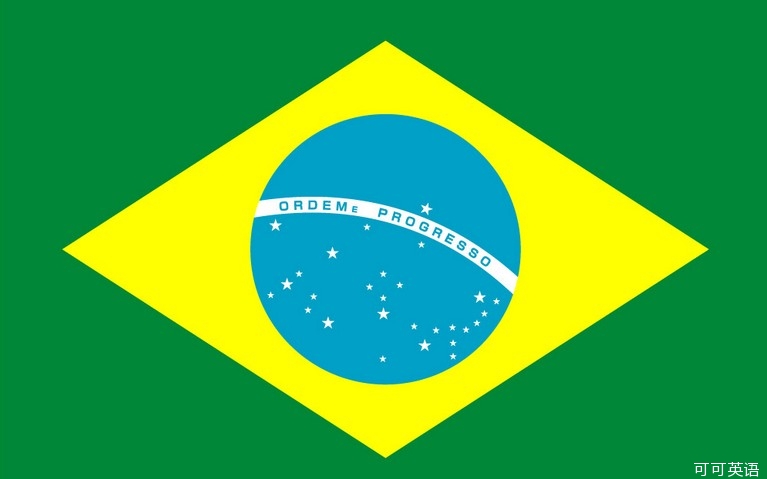(单词翻译:单击)

When I began to train as a diplomatic historian of Brazil, friends and family worried that my life was bound to be dull and lonely in the dusty archives. Before the millennium, nobody cared or worried about Brazilian foreign policy.
当我开始接受巴西外交历史学教育、以期在该领域成为一名专家的时候,朋友和家人都担心,我的人生注定会在沉闷与孤独中度过、整日与尘封的档案为伴。在本世纪之前,没有谁会在意或担心巴西的外交政策。
But then the world changed. The US went to war in the Middle East, Europe faltered, Asia rose, and the institutions that governed the world were evidently no longer up to the task. Unsettling as they were, these transformations opened up a new world of opportunities. Brazil responded accordingly.
但本世纪以来,世界发生了改变。美国在中东发动了战争,欧洲的发展步履蹒跚,亚洲实现了崛起,全球治理机构显然已不再胜任自己的工作。尽管这些变化令人感到不安,但它们却带来了一个充满机会的新世界。巴西也作出了相应的反应。
It sponsored a web of regional institutions in South America, dished out aid and assistance to Africa, flexed its muscles in the World Trade Organisation, and pushed to make organisations such as the G20 and the Brics new fixtures in the international landscape. By the time the world financial crisis hit in 2007, in capitals around the globe everyone was asking: what does Brazil want?
巴西向南美的一系列地区性机构提供了资助,向非洲慷慨地提供援助和帮助,在世贸组织(WTO)中展现了自己的实力,努力推动20国集团(G20)和金砖国家(巴西、俄罗斯、印度、中国和南非,简称Brics)等组织成为国际舞台上的新角色。到了2007年全球金融危机爆发的时候,世界各国的政界人士都在问:巴西这次想要什么?
The typical answers were inauspicious. In Foreign Affairs magazine you could read that Brazil was an “irresponsible stakeholder”, and in Foreign Policy that its aid policies would make the world more “corrupt, chaotic, and authoritarian”. A piece in Global Governance portrays the country as “the most revisionist of all emerging powers... a rising spoiler”.
我看到的答案一般是负面的。在《外交》(Foreign Affairs)杂志上,你可以读到,巴西是一个“不负责任的利益攸关者”。《外交政策》(Foreign Policy)杂志则认为,巴西的援助政策会让世界变得更加“腐败、混乱和专制”。《全球治理》(Global Governance)期刊中的一篇文章,将巴西描述为“所有新兴大国中修正主义倾向最强的国家……一个崛起中的捣乱者。”
To my mind, such criticisms miss a subtle point. The Brazilian establishment does not see itself as a challenger of the global order, even if in its eyes the world remains a nasty place dominated by a handful of powerful nations that will do what they can to keep the likes of Brazil in their place. The solution, it says, lies in piecemeal reforms to mitigate existing inequalities of power. Nobody in Brasilia wants to rock the boat - just to make it bigger and more balanced.
在我看来,这种批评忽略了很微妙的一点。巴西当局并不认为自己是全球秩序的挑战者,尽管在其眼中这个世界仍是由少数强国主导的“肮脏之地”(这些强国会尽其所能让巴西这样的国家“保持本分”)。巴西当局表示,为了解决世界面临的问题,应推进渐进的改革,以缓解目前存在的权力不平等。没有哪位巴西政界人士想把船弄翻,他们只是想把船变大、并让它变得更加平衡。
Thus Brazil says that cherishing non-proliferation is one thing, but sanctioning Iran while rewarding nuclear-armed Israel or India is counterproductive. It also argues that you can be a lover of democracy, just like the US, but this ideal is better served by lifting a 50-year embargo on Cuba. And while Brasilia argues that it is right and proper to suspend a country's sovereign rights when rulers sponsor mass atrocities against their own people, it also insists that Nato's behaviour in Libya smacked of neocolonialism.
因此巴西才表示,核不扩散确实应该得到重视,但在制裁伊朗的同时奖赏拥有核武装的以色列和印度只能起到反效果。巴西还认为,你可以像美国那样推崇民主,但这种理想最好通过取消对古巴长达50年的禁运来体现。此外,虽然巴西当局认为,当一国统治者在背后支持针对本国人民的大规模暴行时,中止该国的主权是正确和适当的,但它同时也坚持认为,北约(NATO)在利比亚的所作所为有一丝新殖民主义的味道。
Yet, when push comes to shove, Brazil struggles to explain what the more balanced world of its dreams would look like. Securing itself a permanent seat in a reformed UN Security Council, or enjoying a few extra perks in the Bretton Woods institutions, does not add up to a compelling vision that others can share. Nor do platitudes about South America as a space of peace and co-operation, which fail to address the many worries of Brazil's neighbours, some of whom see it, sometimes, as an unaccommodating regional hegemon.
然而,到了关键时刻,巴西还是很难解释其梦想中的更为平衡的世界究竟是什么样的。在改革后的联合国安理会(UN Security Council)斩获一个永久席位,或在布雷顿森林(Bretton Woods)机构中享有少许额外特权,并不意味着拥有一个其他国家都认同的诱人愿景——有关南美是和平与合作之地的陈词滥调也是如此,因为这种说法并没有化解巴西邻国的很多担忧。有时候,这些邻国还将巴西视为一个不友好的地区霸主。
Brazil is sharing the burden of global governance more than before - for example with peace-keeping troops in Haiti. But while its diplomatic service has expanded rapidly over the past decade, it remains too small and underfunded for the country to truly project itself abroad.
巴西目前分担的全球治理责任要超过以往,它派驻海地的维和部队就是一例。不过,尽管过去十年里巴西的外交服务发展得很迅速,但这种服务的规模依然太小、支撑这种服务的资金也严重不足,这使得巴西难以真正在海外发挥自己的影响力。
Some say that Brazil is exceptionally equipped to bridge the world's rich and poor, black and white, and Arabs and Jews because its ethnically mixed society is living proof of reconciled national contradictions. But its record in international mediation is not impressive.
有人认为,在弥合世上的富人与穷人、黑人与白人、阿拉伯人与犹太人之间的鸿沟方面,巴西有着独特的优势,因为其由各种族混合而成的社会能够生动地证明,民族矛盾是可以调和的。但巴西在国际调解方面的往绩却并不出色。
Others argue that Brazil represents the voice of the global disfranchised. Yet, for all the rhetoric of “development”, Brazilian foreign policy promotes big business abroad rather than seriously working to improve the lot of the Brazilian majority, who remain either poor or very poor.
还有人认为,巴西代表着全球弱势群体的声音。然而,尽管巴西高举“发展”旗帜,其对外政策仍是促进大企业在海外的发展,而不是真正努力去改善大多数巴西人的命运——这些人仍处在贫穷或非常贫困的境地。
No wonder some have construed Brazil's quest for greater status as little more than an exercise in national vanity and pride, a sense of entitlement based on the country's belief in its own exceptionalism. Exceptionalist accounts are common to all major powers. It is a rather aristocratic quality, which rests on the assumption that nations can operate on the basis of who they are rather than what they do (a more bourgeois ideal).
难怪一些人认为,巴西提高自身地位的努力纯粹出于民族虚荣心和自豪感,也就是一种因信仰本国例外论而产生的优越感。对所有主要大国来说,本国例外论的观点都很常见。这是一种相当贵族化的品质,它基于一个假设,即各国的运行可以“它们是谁”、而非以“它们做什么”为基础(一种有资产阶级倾向的理想)。
Perhaps Brazil's pride is understandable in view of its long history of imperialism under the French, Spanish, Portuguese, Dutch, British and Americans. Only 40 years ago, for example, this is what the British ambassador in Rio de Janeiro had to say: “The Brazilians are still a tremendously second-rate people: but it is equally obvious that they are on their way to a first-rate future.” Today it is only natural that Brazilians should stand up to the hegemonic presumptions that they see as still prevalent in the world.
考虑到巴西在法国人、西班牙人、葡萄牙人、荷兰人、英国人和美洲人治下的悠久帝国主义历史,它的自豪感或许是可以理解的。比如说,就在40年前,英国驻里约热内卢大使还不得不这么说,“巴西人现在显然仍是二等人,但同样显然的是,他们正走在成为一等人的道路上”。今天,巴西人应该站起来对这种他们认为仍盛行于世界的霸权推定说不——这是再自然不过的事情。
As I watch Brazil's current rise from the dusty safety of the archives, my hope is that it will take part in the global conversation.
从尘封的档案中,我目睹了巴西崛起的过程。我的希望是,巴西能够加入到全球对话中。
It would be a shame if policymakers east and west dismissed what Brazilian leaders had to say as too disruptive or irrelevant without first giving them the benefit of the doubt. And it would be a self-inflicted wound if Brazilian statesmen were to walk away, blinded by an overly fervent sense of national pride.
如果东西方政策制定者对巴西领导人不得不说的话不作任何善意理解、就认定这些说法纯属捣乱或毫不重要,那就太令人遗憾了。另一方面,如果巴西政治家面对这种局面、被一种过于强烈的民族自豪感蒙蔽了双眼而选择背身而去,那将让巴西蒙受自找的伤害。
After all, Brazil's trajectory from colony to economic powerhouse, from stale dictatorship to vibrant democracy, is simply spectacular. There's a powerful message there.
毕竟,巴西从殖民地到经济强国、从腐朽的独裁制度到生机勃勃的民主制度的转变是一件了不起的事情。这件事传递出了强有力的信号。
Matias Spektor is the 2013 Rio Branco Chair in International Relations at King’s College London, and an associate professor at Funda??o Getulio Vargas in Rio de Janeiro
本文作者为伦敦国王学院(King's College London) 2013届“里奥?布兰科”国际关系学教授(the 2013 Rio Branco Chair in International Relations)、里约热内卢“热图利奥?瓦尔加斯基金会”(Funda??o Getulio Vargas)副教授


